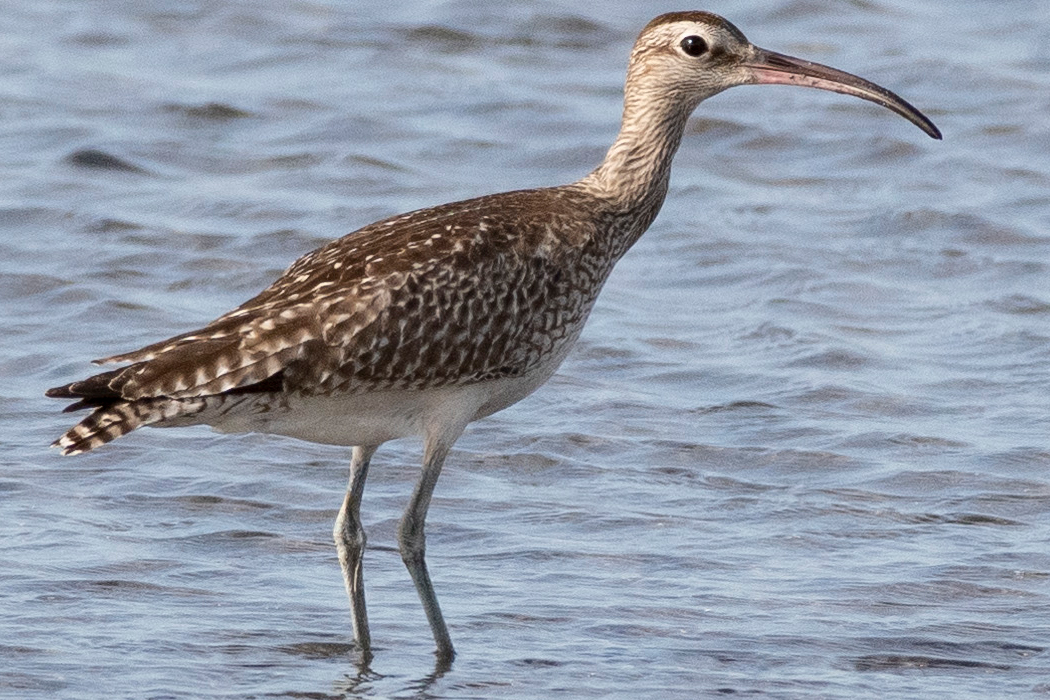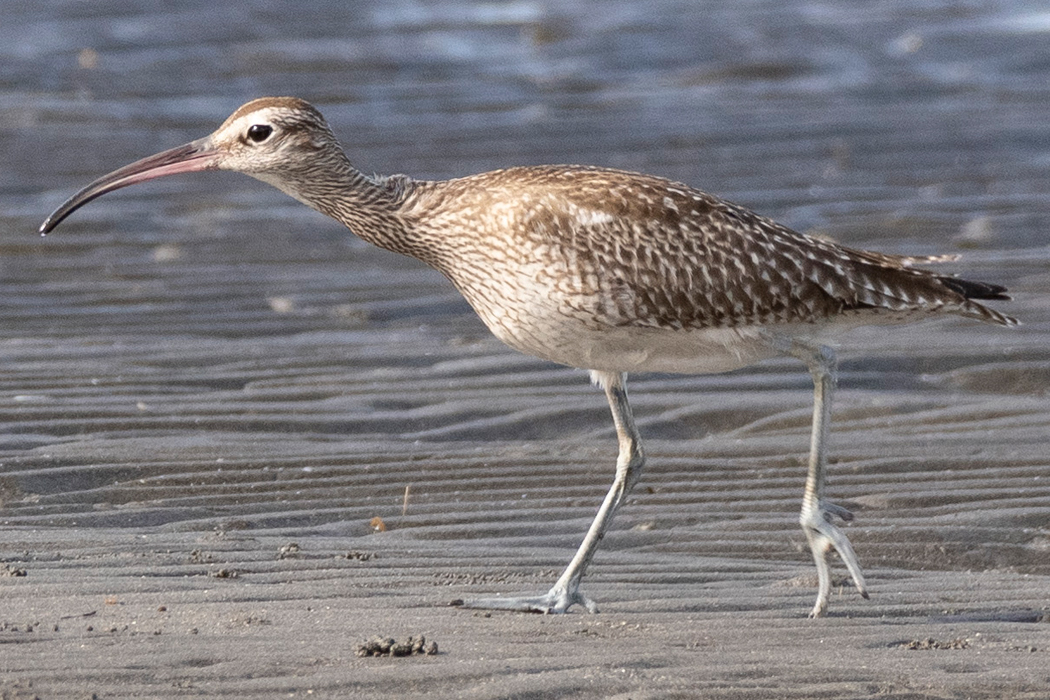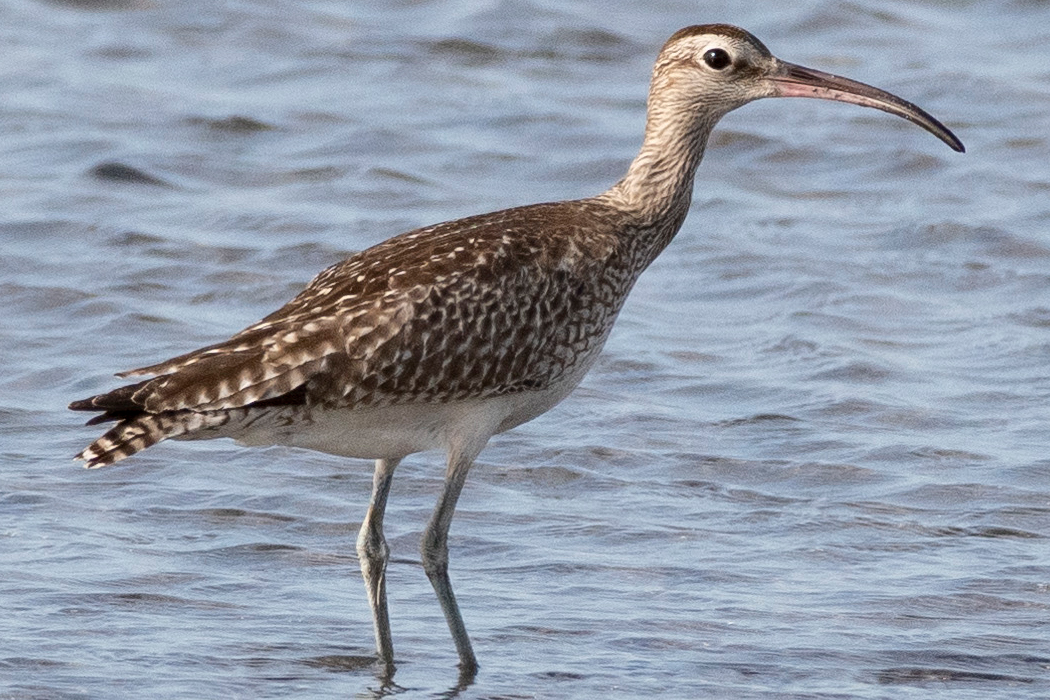
Whimbrel
Distinctive feature is the downward curved beak.
| Scientific name | Numenius phaeopus |
| English name | Whimbrel |
| Japanese name | 中杓鴫 |
| Classification | Aves |
| Classification details | Charadriiformes Scolopacidae |
| Full length | about 40cm |
| Distribution | across the world. |
Characteristics
This sandpiper has a distinctive beak with a downwardly curved tip. Its color is a mixture of gray and brown. The midline of the head runs clearly, and the face looks like a striped pattern of brown and white. The beak is lead-colored or flesh-colored. The legs are blue-gray.
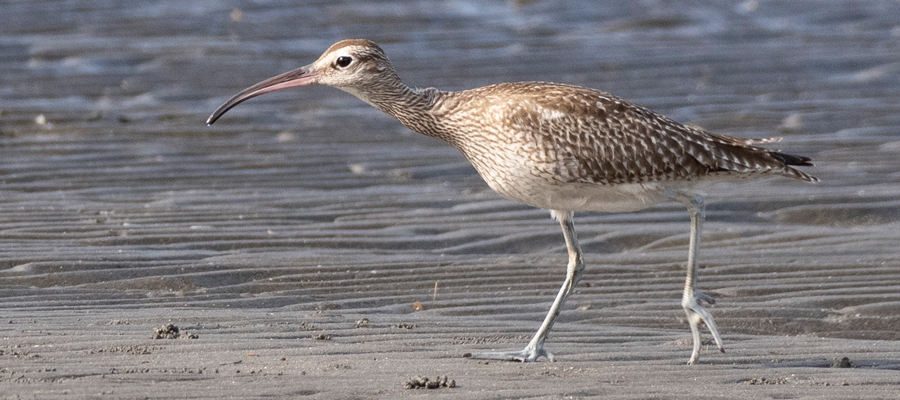
Ecology
It flies to tidal flats and rice fields as a migratory bird. They sometimes travel in small groups, but when migrating they form large flocks.
They dig their beaks into the sand to capture and eat small animals such as crustaceans.
Habitat
Sanbanze
I photographed two of them walking along Sanbanze in the morning. It was walking a little far from the water's edge. It foraged with its beak in the sand.
When you stretch your neck, it becomes an elongated silhouette.
Pictures
Introducing a picture of Whimbrel.
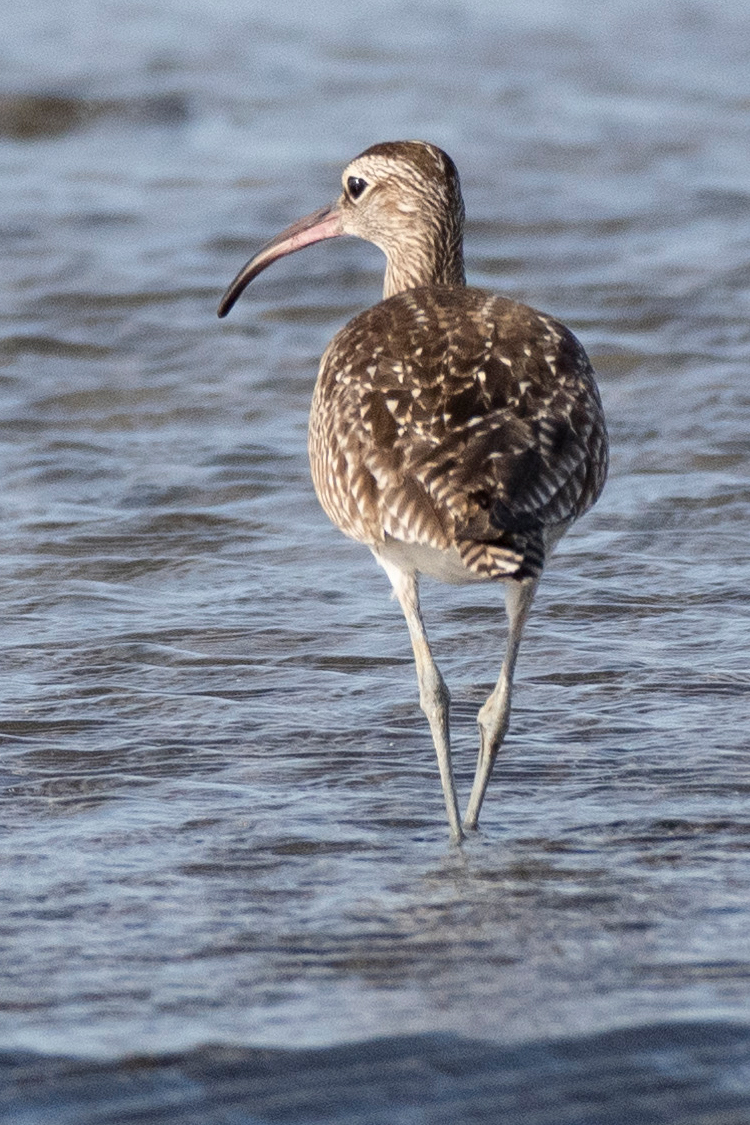
Picture book

---
There are black spots like eyebrows on the face.......ead more.
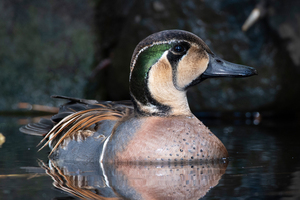
Balkal Teal
A face with a black, green, and brown Tomoe-shaped pattern......ead more.

Common Pheasant
The national bird of Japan that is familiar to Momotaro.......ead more.
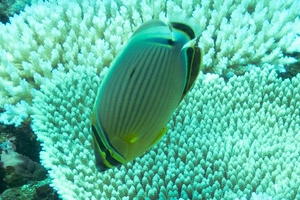
Oval butterflyfish
3 black streaks run down the body.......ead more.
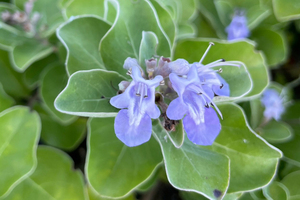
Vitex rotundifolia
Light purple flowers bloom on the coast.......ead more.
